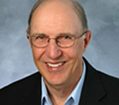In recent days, I have been participating in a lively discussion through the IFAL LinkedIn group. The discussion was initiated by interest in Action Learning (AL) approaches that included experiential exercises led by the coach and the discussion led to a sharing of views about the appropriate role of the coach as a facilitator in general. The approaches were termed “hybrid” because they mixed AL and other experiential learning methods.
Some believed that it was permissible, if not desirable, for coaches to become involved in directing team activities and entering into and giving recommendations or their views on how the team should run. They agreed that these activities should begin with questions but also believed that the coach should act as team facilitator when they believed that their interventions, even if directive, would improve the team process.
Others, including me, held to the view that it was highly desirable for coaches to model and enforce the ground rule that all statements, directions, and opinions should stem from questions. I also made the case that the proper role of the coach is that of a catalyzer rather than as a facilitator. This view stems from my explicit goal that the team should become self-managing and do as much for itself as possible.
The benefits of self-management and self-initiation were demonstrated by the success of community organizer Saul Alinsky who greatly influenced Hillary Clinton and Barack Obama. Alinsky’s core belief about effective community organizing is summed up in his instruction to those whose aim is to foster community engagement and responsibility (delivered with in the Chicago vernacular!) – “Don’t nobody do ‘nutin’ for nobody what they can do for themselves.”
A coach is most successful in catalyzing action and learning when they convey a steadfast belief in the ability of the team to self-manage and create its own solutions to problems and challenges as they emerge. The simplest and most effective way to do this is to ask great questions that go to the core of what is happening in the team and that challenge the team to invent better ways of accomplishing its objectives.
If you would like to learn more about this approach to AL coaching, please consider enrolling in a course that I will deliver (with Arthur Freedman) in Washington, DC, October 2 & 3.(http://www.cvent.com/events/advanced-training-for-action-learning-coaches/event-summary-56689eac53584f2791b8c45ec9fbeb35.aspx)
Skip Leonard, PhD
Master Coach





